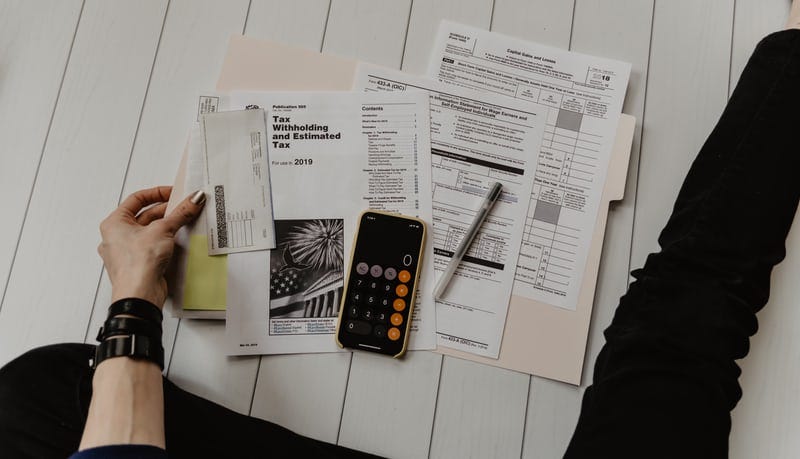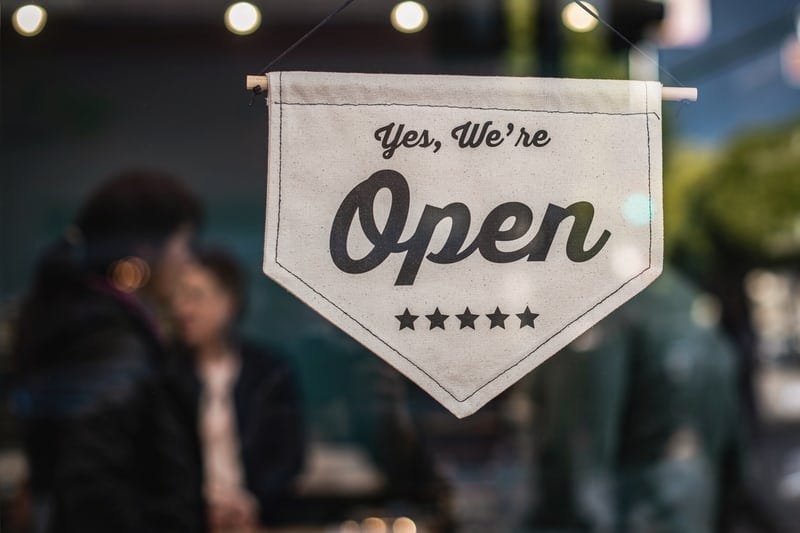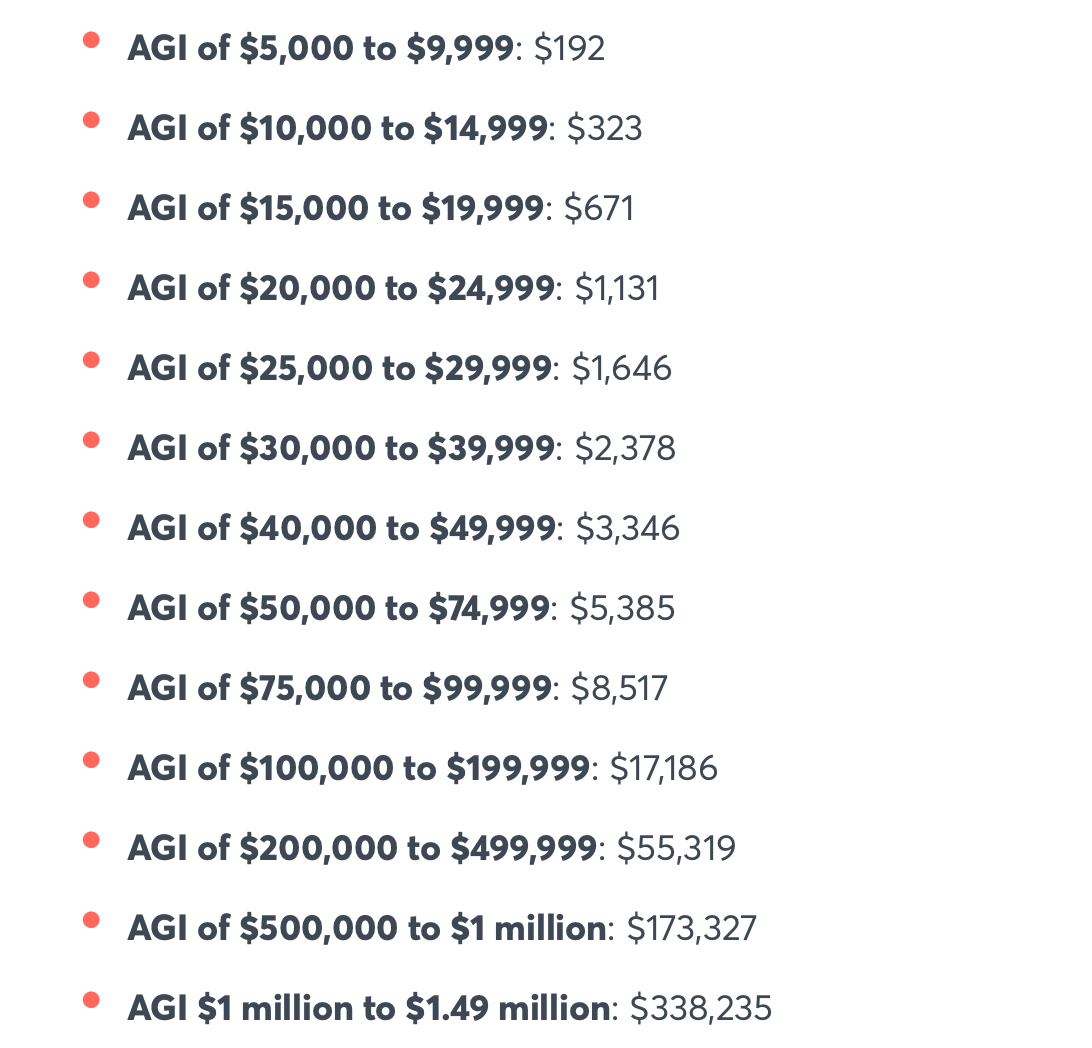Is this good or bad news?
The amount of taxes Americans have paid this past year is at an all-time low.
It is positive news in a sense that Americans seem to be more financially literate and clever in their ways of saving money yet dangerous as our country is in dire constraints in terms of bridging wealth inequality.
Last year, 45% of Americans paid no federal income tax and they’ve done it in entirely legal ways.
The basic principle in taking advantage of the tax system is this:
The more one makes in W2 income (pay/wages/salary/bonuses/tips earned by an employer), the more their income is given away to the U.S. government via the tax system. No matter if you are a CEO or a software engineer, you have to give up more of your juicy pay than someone earning less but in the end, keeping more.
Once again, this is a toss up. Good news if you care to contribute in reducing the government’s 14 trillion dollar debt load, support the rest of the 90% below you trying to survive pay-check-to-paycheck or bad if you are a frivolous spender and have no clue on how to use your money appropriately.
It’s all relative. Whether you make $20k or $200m a year comes down to spending and with most people, their inclination when they make more is to spend more.
How you spend $1k is indicative of how you will spend $1m and with no financial literacy mandatory courses instituted nationwide, there’s no doubt most people fall into debt not realizing taxes take up a hefty portion of earnings.
What to do about this?
If you have a high position at a firm where you’re making close to 6, 7 figures a year, that’s the time to really access if it’s worth earning that much relative to the amount subtracted due to taxes. If you earn a salary no matter how high, you cannot beat the system. The best solution as an employee to keep the most after taxes is to spend less or own stock options/shares from your company but even that is taxed once cashed out.
If you are fortunate to be at this stage, one must access their family’s needs, wants, location, health, consideration of time and real drive for the job as the paycheck may or may not be worth it based on that criteria.
More pay doesn’t mean more freedom or flexibility. It means more responsibility which more often than not takes a toll on one’s health if you don’t love waking up each morning to do what you love.
There’s no getting around taxes. They’ll always chase you down in a corporate setting and for many they don’t mind. Not everyone wants to be an entrepreneur or founder having to purchase their own costly heath insurance, earn unstable pay, set up a separate IRA, compute taxes each quarter and put in the extra effort to form a community outside of home. With majority of Americans employed as W2 earners in the workforce, many have side-hustles, if allowed, that provide them the opportunity to enrich their passion outside of work to lessen the tax burden.
Not all passions are meant to be full-time as illustrated here.

Side Hustlin’
It’s not as scary as you may think to have multiple gigs and as with myself, doing more may propel you further in other areas of life. If you put in the work, the work will work for you. If you don’t mind being beholden to taxes, go ahead but there are always ways to get out of it that don’t require much upfront capital expenditure or time consumption if established correctly.
The most common businesses amongst the employed outside of work are in real estate. Owning a rental property, managing tenants, fixing a fixer upper and flipping a house doesn’t sound fun yet it’s what many employees tackle instead of waiting for a raise. As a new landlord I can attest to the grueling work and annoying logistics of a rental yet in the end, it is an incredible journey and fulfilling experience to be able to provide a home to strangers and have a mini Airbnb service. Plus real estate offers numerous benefits one of which are the uncorrelated returns to the stock market since stocks are frothy and volatile, the complete opposite of the boring slow real estate sector.
This is one of many types of business you can start. Yes it comes with a price-tag which consists of the deposit and mortgage but not all real estate offers require it. If you’re looking for exposure into real estate, only without the immense tax benefits, I suggest digging into crowdfunding platforms such as Fundrise or Crowdstreet (not sponsored) to invest in companies that take care of properties across the U.S. No tenants, renovations or check-ups necessary.
A business is anything that you manage yourself and earn cash flow from. This allows the expenses used to fund the business from transportation to renovation repairs to be deducted as a tax write-off. Earning or loosing, it’s somehow still considered a business! Real estate is the most common in this regard because anything that is considered a business expense is almost free. From a blog to a store on Amazon marketplace, purchases made to fuel the business are tax-deductible. This is where a slim majority of the 45% of non-tax payers have gotten away with paying nothing to Uncle Sam.

In and Out
Owning and operating a business certainly comes with obstacles yet clearly worth it for millions who want to avoid the tax burden.
Homeowners who manage rental properties on average fall into the middle to upper class threshold as they have more disposable income to dish out on a property and take care of tenants or have a management property to do it for them. For the top 5% and above, a rental is a burden. It’s not worth it and the monthly income they earn doesn’t add up relative to the cost and time wasted.
These folks seek alternatives like a billion dollar business deal, syndicate, partnership, venture capital or private equity investment or pour in money to scale their venture further. They get away with taxes in an easier fashion because they have more contacts, networks and accessibility into different funds, also known as tax shelters/havens in small random islands where one avoids paying income and corporate tax, assuming they have a business of their own, which is tax evasion. This is illegal since one is stashing their money away in off-shore accounts.

Bump It Up
Astonishingly with 77.5 million households having not paid federal individual income taxes last year, this is beyond the top 1% which consists of only 1.6 million Americans. Americans in all income classes have gotten creative and strategic riding the side-hustle, influencer, creator self-employed business route.
Despite this decrease over the years and immense opportunities for the richest of the world to bypass the system, the top 10% do in fact pay the most income taxes, forking over 87% of all the income tax collected by Uncle Sam.
And the top 10% aren’t considered billionaires, only millionaires. They include middle to upper class Americans, possibly wealthy immigrants, some celebrities and congresswomen and men such as Nancy Pelosi or Fed Chairman Jerome Powell, early-stage Fortune 500 corporate executives/partners/MDs, prominent leaders in the industry, athletes, models, and newcomers in the talk-show host space with a net worth in the ball-mark of a couple to a few hundred million earning around a couple million per year.

Yet when it gets to the top 1% who have an average income of more than $2.1 million, they’ve only paid 43.6% of taxes and the top 0.1% including 115k households with an average income of $9.4 million only paid 20% of the taxes collected.
As we’ve witnessed with our former president who was accused of paying a whooping $750 in individual federal taxes in 2016 and for the 10 of the previous 15 years paid $0 in federal income taxes since his business lost hundreds of millions of dollars which allowed him to reduce his tax burden, this is a disgrace and injustice to the average American trying to get by with 2 jobs.
To see how unfair this system really is, observe below the average taxpayer in different income groups according to the IRS:

Skyrocket
Ready for it?
Officially in 2020, 61% of Americans paid no federal income taxes according to the IRS. This is now more than 100 million U.S. households!
How could this be? The IRS seems to creep up on all of us and the last thing we want is to be audited and pay more.
There are only so many loopholes, funds and business tax write-offs we could get right?
In 2020, due to the coronavirus pandemic, high unemployment, layoffs, evictions, and the tight labor market all lead to the federal stimulus pump which lead millions of Americans to owe zero federal income tax as they received tax credits from the government.
So how does this happen?
Let’s say someone would have owned $2K in 2020 income tax. Once they received 2 stimulus payments both of which included $1200 in April and $600 in December, this bumped their tax liability down to the category of non-tax payers.
The IRS is keeping a close eye out for 2022 as these tax credits will then expire. We’ll really see then how these generous tax credit programs have impacted Americans and if the amount of taxes paid will finally rise.
The share of Americans who pay zero income taxes is expected to stay high, at around 57% this year, according to the Tax Policy Center. It’s expected to fall back down to 42% in 2022 and remain at around 41% or 42% through 2025.
There’s no doubt the wealthy have more opportunities, cash flow and connections to take advantage of this system for longer and it will be very difficult to stop them. We’re only discovering now that Bezos to Trump have been taking advantage of this system for decades. Not paying their fair share in taxes has detrimental effects on the country’s tax system and delays the progression of paying it off which will certainty not happen within a few years, let alone decades as this manipulation is only getting worse.
As much as we want to believe America is united, we aren’t. As the rich get richer, the poorer get poorer and if Americans didn’t have to own rental properties or a business to reduce their tax burden, they most likely wouldn’t bother. Taxes are such a heavy weight on hard-earned earnings, Americans feel inclined to avoid them which at least promotes the economy through more business creation.
Conversely, tax avoidance drives business and profits in the wrong direction.
Pay your fair share and support those who were in your shoes.

